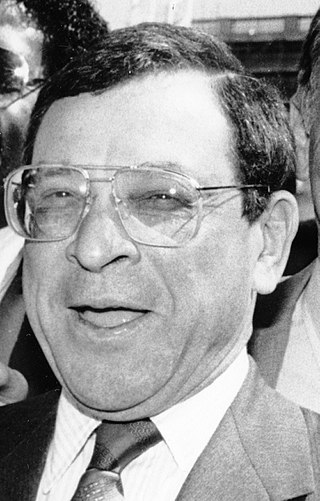
Ernest Nathan "Dutch" Morial, was an American politician and a leading civil rights advocate. He was the first black mayor of New Orleans, serving from 1978 to 1986. He was the father of Marc Morial, who served as Mayor of New Orleans from 1994 to 2002.

The history of New Orleans, Louisiana traces the city's development from its founding by the French in 1718 through its period of Spanish control, then briefly back to French rule before being acquired by the United States in the Louisiana Purchase in 1803. During the War of 1812, the last major battle was the Battle of New Orleans in 1815. Throughout the 19th century, New Orleans was the largest port in the Southern United States, exporting most of the nation's cotton output and other farm products to Western Europe and New England. As the largest city in the South at the start of the Civil War (1861–1865), it was an early target for capture by Union forces. With its rich and unique cultural and architectural heritage, New Orleans remains a major destination for live music, tourism, conventions, and sporting events and annual Mardi Gras celebrations. After the significant destruction and loss of life resulting from Hurricane Katrina in 2005, the city would bounce back and rebuild in the ensuing years.

Mitchell Joseph Landrieu is an American lawyer and politician who served as Mayor of New Orleans from 2010 to 2018. A member of the Democratic Party, he previously served as Lieutenant Governor of Louisiana from 2004 to 2010.

Clarence Raymond Joseph Nagin Jr. is an American former politician who was the 60th Mayor of New Orleans, Louisiana, from 2002 to 2010. A Democrat, Nagin became internationally known in 2005 in the aftermath of Hurricane Katrina.
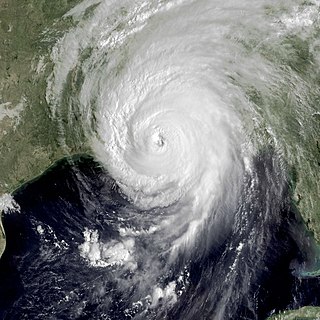
As the center of Hurricane Katrina passed southeast of New Orleans on August 29, 2005, winds downtown were in the Category 1 range with frequent intense gusts. The storm surge caused approximately 23 breaches in the drainage canal and navigational canal levees and flood walls. As mandated in the Flood Control Act of 1965, responsibility for the design and construction of the city’s levees belongs to the United States Army Corps of Engineers and responsibility for their maintenance belongs to the Orleans Levee District. The failures of levees and flood walls during Katrina are considered by experts to be the worst engineering disaster in the history of the United States. By August 31, 2005, 80% of New Orleans was flooded, with some parts under 15 feet (4.6 m) of water. The famous French Quarter and Garden District escaped flooding because those areas are above sea level. The major breaches included the 17th Street Canal levee, the Industrial Canal levee, and the London Avenue Canal flood wall. These breaches caused the majority of the flooding, according to a June 2007 report by the American Society of Civil Engineers. The flood disaster halted oil production and refining which increased oil prices worldwide.

Hurricane preparedness in New Orleans has been an issue since the city's early settlement because of its location.
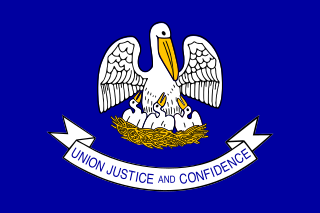
Criticism of the government response to Hurricane Katrina was a major political dispute in the United States in 2005 that consisted primarily of condemnations of mismanagement and lack of preparation in the relief effort in response to Hurricane Katrina and its aftermath. Specifically, there was a delayed response to the flooding of New Orleans, Louisiana.

This article contains a historical timeline of the events of Hurricane Katrina on August 23–30, 2005 and its aftermath.

Charles Garland Robinette is a journalist in the New Orleans area. He was recently the host of "The Think Tank" on New Orleans radio station WWL (AM).

The Chocolate City speech is the nickname that some people have given to the Martin Luther King Jr. Day speech by Ray Nagin, Mayor of New Orleans, Louisiana, on January 16, 2006. The speech concerned race politics in New Orleans several months after Hurricane Katrina destroyed much of the city. The reference is to the occurrence of the phrase chocolate city in Nagin's speech, which was one of several points in the speech that occasioned significant controversy and raised accusations of racism against Mr. Nagin.

The first round of the New Orleans mayoral election of 2006 took place on April 22, 2006; a runoff between incumbent Mayor Ray Nagin and Louisiana Lieutenant Governor Mitch Landrieu took place on May 20, resulting in reelection for Mayor Nagin. The Mayor of New Orleans is the top official in New Orleans' mayor-council system of government.

The New Orleans mayoral election of 2002 was an election for Mayor of New Orleans; the primary round of voting was held on February 2, 2002, followed by a runoff on March 2. It resulted in the election of Ray Nagin as mayor.

The New Orleans mayoral election of 1994 was held on March 5, 1994 and resulted in the election of Marc Morial as Mayor of New Orleans.
Ron Forman is the head of the Audubon Nature Institute and was one of the leading candidates in the 2006 New Orleans mayoral election. A past president of the American Zoo and Aquarium Association, Ron Forman began his tenure with Audubon Park and Zoological Garden in 1972 as City Hall liaison. Made Deputy Director in 1973 and Executive Director in 1977, the major transformation of Audubon Zoo from an "urban ghetto" to an "urban Eden" was underway.
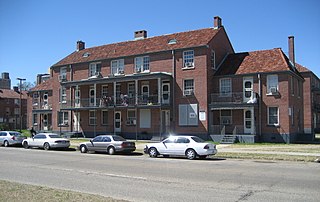
Iberville Projects was a neighborhood in the city of New Orleans and one of the low-income Housing Projects of New Orleans. The Iberville was the last of the New Deal-era public housing remaining in the city. Its boundaries were St. Louis Street, Basin Street, Iberville Street, and North Claiborne Avenue. It is located in the 6th ward of downtown New Orleans, on the former site of the Storyville district. The area has recently been redeveloped into a modernized apartment complex called the Bienville Basin Apartments.
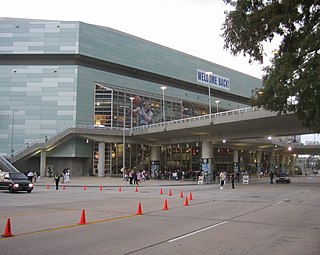
When the Levees Broke: A Requiem in Four Acts is a 2006 documentary film directed by Spike Lee about the devastation of New Orleans, Louisiana following the failure of the levees during Hurricane Katrina. It was filmed in late August and early September 2005, and premiered at the New Orleans Arena on August 16, 2006 and was first aired on HBO the following week. The television premiere aired in two parts on August 21 and 22, 2006 on HBO. It has been described by Sheila Nevins, chief of HBO's documentary unit, as "one of the most important films HBO has ever made." The title is a reference to the blues tune "When the Levee Breaks" by Kansas Joe McCoy and Memphis Minnie about the Great Mississippi Flood of 1927.

The 2010 New Orleans mayoral election was held on February 6, 2010, to elect the Mayor of New Orleans, Louisiana. Incumbent Democratic Mayor Ray Nagin was term-limited and ineligible to run for re-election to a third term.

William Harold Nungesser is an American politician serving as the 54th lieutenant governor of Louisiana since 2016. A member of the Republican Party, Nungesser is also the former president of the Plaquemines Parish Commission, having been re-elected to a second four-year term in the 2010 general election in which he topped two opponents with more than 71 percent of the vote. His second term as parish president began on January 1, 2011, and ended four years later.

Paul W. Rainwater is an American former local and state government official from Louisiana who served as an aide to Governor Bobby Jindal and played a prominent role in Louisiana during its recovery from Hurricanes Katrina, Rita, Gustav, and Ike and the recovery of the state from the 2010 British Petroleum Oil Spill.
Cheron Michelle Brylski, is a writer, speechwriter, public relations director and activist who built a career helping minorities and women enter the political mainstream in Louisiana and improve their quality of life through education, health and economic reform. She was the first woman to be appointed to the chartered position Public Information Director for the City of New Orleans by the late Mayor Ernest Nathan Morial. She worked in city government from 1980 to 1986, when she started her own consulting business. For nearly 30 years, her boutique public relations agency, The Brylski Company, headquartered in New Orleans has helped governmental, political and non-profit clients move their message through effective communications.

















